Committees
All things committee related can now be found below!
Beginner Committees
GA1 – First General Committee
Disarmament and International Security Committee (DISEC)
About GA1
The United Nations First General Assembly Committee is one of six main committees at the General Assembly of the United Nations. It addresses issues of international security and disarmament.
Topic 1: Discussing global cooperation to prevent the misuse of surveillance and military-grade cyber technologies.
Topic 2:Enforce global limits on explosive weapons in populated areas, as the UN and HRW reports on civilian casualties in eastern DR Congo
Delegations:TBD
GA2 – Second General Committee
Economic and Financial Committee (ECOFIN)
About GA2
The United Nations Second General Assembly Committee is one of six main committees at the General Assembly of the United Nations. It addresses the dealing with economic and financial issues.
Topic 1: Addressing the economic impact of new US trade policies and tariff volatility on foreign aid, development assistance and stability of global trade.
Topic 2:Addressing sovereign debt dependency of former French colonies in West Africa and its impact on economic self-determination
Delegations:TBD
GA3 – Third General Committee
Social, Humanitarian, and Cultural Committee (SOCHUM)
About GA3
The United Nations Third General Assembly Committee is one of six main committees at the General Assembly of the United Nations. Its main focus being on Social, Humanitarian & Cultural issues.
Topic 1: Protecting the Rights of Refugees in Displacement Situations, with Particular Attention to Access to Legal Protections and Essential Services
Topic 2:Combating human trafficking in conflict and post-conflict regions, with emphasis on prosecution and victim protection regulations.
Delegations:TBD
GA4 – Fourth General Committee
Special Political and Decolonization Committee
About GA4
The United Nations Fourth General Assembly Committee is one of six main committees at the General Assembly of the United Nations. It is responsible for addressing issues related to decolonization, peacekeeping operations, and other special political questions.
Topic 1: Assessing the Ongoing Infringement of Palestinian Territorial Rights Resulting from Settlement Activities in the Occupied Palestinian Territories
Topic 2:Examining decolonization frameworks for remaining non-self-governing territories and their right to self-determination
Delegations:TBD
GA6 – Sixth General Committee
International Law, Legal Principles, Treaties, and Justive (LEGAL)
About GA6
The United Nations Sixth General Assembly Committee is one of six main committees at the General Assembly of the United Nations. It is known as the legal committee and responsible for International Law.
Topic 1: Addressing prosecution challenges for war crimes and crimes against humanity committed in the ongoing conflicts in Ukraine.
Topic 2:Establishing international legal frameworks for accountability in the use of autonomous weapon systems & lethal AI systems in armed conflict.
Delegations:TBD
Intermediate Committees
CCPCJ
Commission on Crime Prevention and Criminal Justice
About CCPCJ
The The Commission on Crime Prevention and Criminal Justice is focused on everything related to countering the destabilising effects of organized crime, corruption, violence, and trafficking of human beings.
Topic 1: Strengthening global regulations to combat cyber crime and digital fraud, emphasising cryptocurrecy-based money laundering and ransomware attacks
Topic 2:Strengthening international cooperation against drug cartels operating across borders
Delegations:TBD
UNHRC
United Nations Human Rights Council
About UNHRC
The Human Rights Council was established to strengthen the promotion and protection of human rightsaround the globe and for addressing situations of human rights violationsand making recommendations on them.
Topic 1: Safeguarding journalists and human rights defenders in war zones
Topic 2:Addressing atrocities and accountability in Sudan: (investigating ethnically-motivated killings, sexual violence, and war crimes in El Fasher and Darfur following the November 2025 Rapid Support Forces assault)
Delegations:TBD
UNESCO
United Nations Educational, Scientific, and Cultural Organization
About UNESCO
The United Nations Educational, Scientific and Cultural Organization is built on five fundamental principles/pillars. These pillars are: Education, Natural sciences, social and human sciences, culture,and communication & information.
Topic 1: Protecting cultural heritage sites in Mali from destruction by non-state armed groups
Topic 2:Addressing education (access and quality) in conflict-affected regions, with focus on safeguarding schools as protected spaces.
Delegations:TBD
WHO
World Health Organization
About WHO
The World Health Organization is the United Nation’s specialized agency for Health. It takes on the most pressing health emergencies, including disease outbreaks, natural disasters, humanitarian crises and pandemics.
Topic 1: Responding to health emergencies amid severe funding cuts: maintaining essential health services including maternal care, vaccination, HIV prevention, and disease surveillance in crisis-affected regions
Topic 2:Addressing the global crisis of antimicrobial resistance (AMR): strengthening surveillance systems, promoting antimicrobial stewardship, and ensuring equitable access to effective antibiotics
Delegations:TBD
Advanced Committees
SC
Security Council
About SC
The Security Council is responsible for the very important role of the maintenance of international peace and security. Only the Security Council has the power to make decisions that member states are then obligated to implement under the Charter.
Topic 1: Preventing U.S.–European escalation regarding the proposed invasion of Greenland
Topic 2:Responding to escalating armed conflict and foreign intervention in the Democratic Republic of Congo: (addressing M23 advances toward Goma, attacks on Un peacekeepers, and allegations of rwandan support (January 2025))
Delegations:TBD
HSC
Historic Security Council
About HSC
The Historic Security Council is a specialized committee that simulates the United Nations Security Council during a specific historical period. This means that the debate will be set during that previous time period and not in our current one. Just like in the regular Security Council they are responsible for international peace and security.
Topic 1: Managing Superpower Tensions During the Cuban Missile Crisis to Prevent Nuclear Escalation
Topic 2:Preventing Ethnic Conflict and Mass Atrocities During the Balkan Wars of the 1990s
Delegations:TBD
